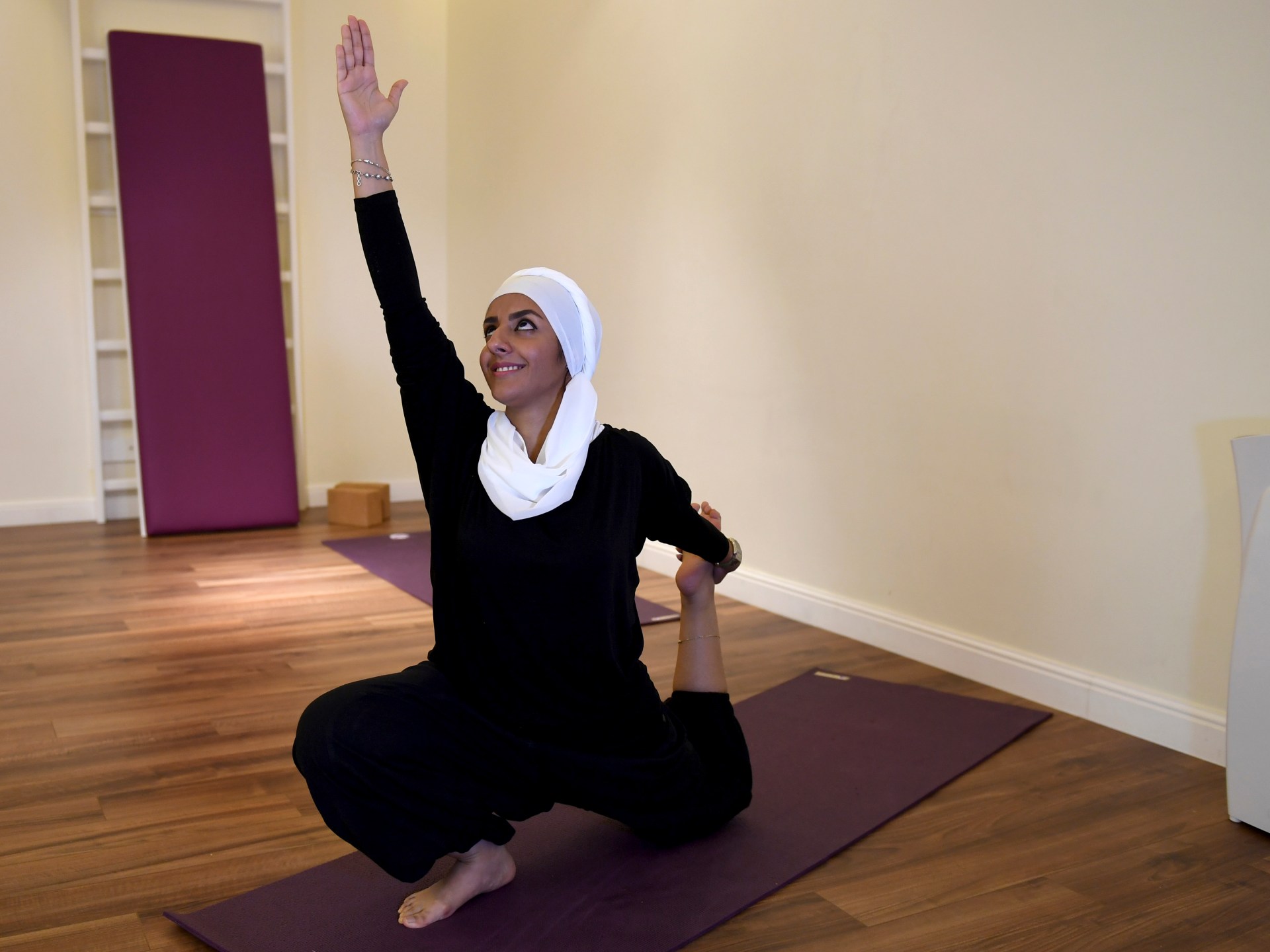Are there risks to a person if he exercises while fasting, and which methods are best for exercising in the month of Ramadan?
A question that is repeated every year due to the importance of exercise for many, especially women, because they want to maintain their health during fasting.
Exercise, if practiced correctly in Ramadan, has many health benefits, according to experts, such as increasing the efficiency of the liver and stimulating metabolism. It also leads to increasing the efficiency of the muscular system, ridding the body of grease and maintaining its weight after fatty Ramadan foods rich in fats and sugars, according to a report published by the German website "Deutsche Welle".
Dr. Michael Dispigel believes that during fasting, strenuous exercise should be completely avoided and replaced by walking, and also get enough sleep to stimulate the renewal process in the body, in this way the body gets rid of toxins and renews cells.
Dispigel also recommends stretching and light exercises to strengthen muscles. The sports expert explains in an interview with the German site "Fitbook" that "exercises that require high coordination are not suitable for fasting."
Exercise in Ramadan has many health benefits such as increasing the efficiency of liver work and stimulating metabolism (French)
Doing strenuous exercise during fasting strains the immune system and prevents the regeneration process, and this may lead to the emergence of some health problems such as cough, runny nose, hoarseness, sinusitis or digestive problems, according to the expert Dispigel.
But that doesn't mean giving up more physically demanding sports in Ramadan, just choosing when to do it. If the sport requires a lot of physical effort, it should be practiced about 3 hours after breakfast.
During the fasting period, it is preferable to practice light sports such as walking or running with a pulse rate not exceeding 70% (to calculate the pulse rate, you must first calculate the maximum pulse rate of a person by subtracting the number of years of life from the number 220, and then multiplying the result by 70% to calculate the target pulse rate).
Fasting exercise is essential
But what kind of exercises? And when can you practice it during the holy month of Ramadan? These are some of the questions asked by women who are interested in their fitness or fear obesity, or who want to lose weight or eat a healthy diet in the holy month of Ramadan. What do experts say?
Fitness expert Elena Assaf explains to Al Jazeera Net that continuing to exercise during the month of Ramadan is very necessary for women, to maintain the activity of the body and not to gain weight and avoid falling into laziness, as sports during fasting lead to burning fat more, as well as providing the body with the energy it needs and improve the mood experienced by the fasting person, and improve the hormones of happiness, which leads to an improvement in the psychological state and away from stress and anxiety.
Because the fasting person relies on Suhoor and Iftar meals, he should focus on the quality of his meals by staying away from sugars and fats and eating balanced meals with important elements, including carbohydrates (bread, rice, pasta or potatoes), proteins (milk and dairy products, chicken or fish), fats (olive oil, tahini or chickpeas), or vegetables of various kinds.
Sports before breakfast
Assaf adds that many do not like to exercise after Iftar, because of the feeling of satiety and fatigue, so the majority always prefer to exercise before Iftar.
She says that specialists recommend light exercise two hours before Iftar time, and for a period of time ranging from 45 minutes to a maximum of an hour, and they also advise against strenuous exercises that require great effort and lead to excessive fatigue, extreme thirst and rapid heartbeat with high pressure.
One of the most important tips directed by fitness expert Assaf to women who want to lose weight during this month is moderation in eating meals and not eating excessive sweets, and not to drink a lot of soft drinks and juices, in addition to not sleeping too much in the day.

